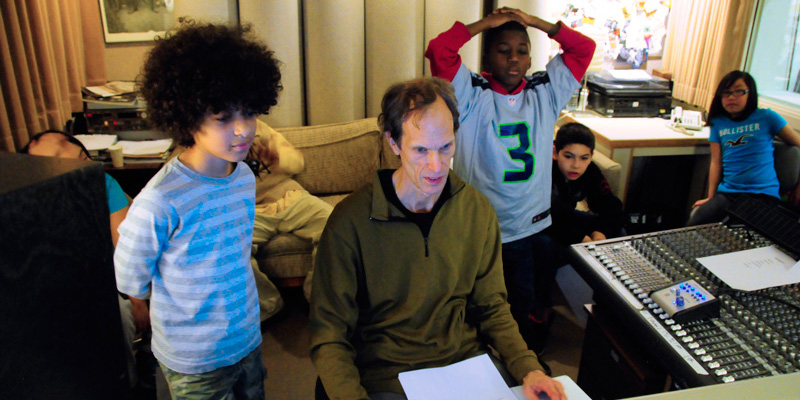Artist Support Program
The Artist Support Program has been assisting artists working creatively with sound since 1994. Artists of every genre and style have been represented, including writers, choreographers, multidisciplinary artists, theatre sound designers, radio producers, film makers, visual artists, and musicians and composers of all types. Every year, up to eight artists are awarded twenty hours of studio recording and production time with a Jack Straw engineer. An additional twelve artists receive matching awards for studio time as part of our Artist Assistance Program.
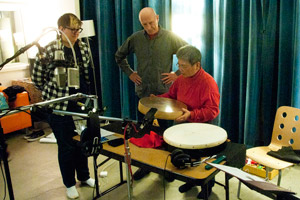
Jack Straw artist Clyde Petersen in the studio at Jack Straw with lead engineer Doug Haire and sound artist Susie Kozawa.
New Media Gallery
The Jack Straw New Media Gallery opened in 1999 to support artists working with visual and installation art, with an emphasis on sound. The New Media Gallery Program is one of three residency programs at Jack Straw. The New Media Gallery exhibits artists’ work through an open call process like the Artist Support Program and Writers Program. As one of a handful of exclusively sound art spaces in the world, it has been attracting applicants nationally and internationally, however Jack Straw has a commitment to local artists.
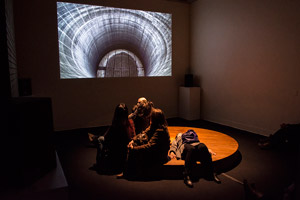
Etsuko Ichikawa’s exhibit Echo at Satsop. Photo by Lincoln Potter.
Writers Program
The Jack Straw Writers Program was created in 1997 to introduce local writers to the medium of recorded audio, to develop their presentation skills for both live and recorded readings, to encourage the creation of new literary work, and to provide new venues for the writers and their work. Each year twelve writers/writing teams are selected by a curator out of dozens of applicants, based on artistic excellence, diversity of literary genres, and a cohesive grouping of writers. Live readings are recorded, and selected portions are produced for podcasts and radio broadcast.
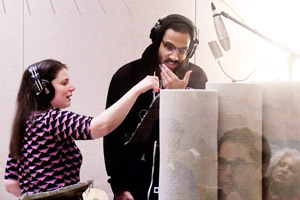
2017 Jack Straw Writer Quenton Baker in the Jack Straw studio with voice coach Alyssa Keene.
Youth Education
Jack Straw Cultural Center has a commitment to art and technology education for all ages. We have implemented a wide range of classroom, in-studio, and learning programs for children and adults. Through our radio drama, music, and creative audio production programs, students work with professional artists to learn about the arts and to develop ways to express themselves creatively.
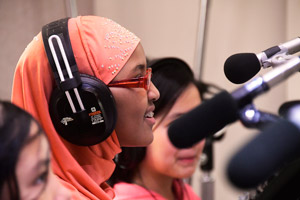
Students from John Muir Elementary School in the studio at Jack Straw.
Adult Education
Jack Straw Cultural Center is committed to art and technology education for all ages. Through our professional audio workshops, artist residencies, and custom-designed in-studio programs, we work with artists at all levels to develop their audio skills.
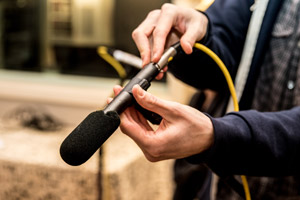
Art & Heritage Partnerships
Jack Straw Cultural Center works closely with arts and heritage organizations and community groups to develop and implement special projects. We record and document cultural heritage, encourage new works among contemporary composers, and conduct interviews and oral histories for radio, for audio guides, and for podcasts.
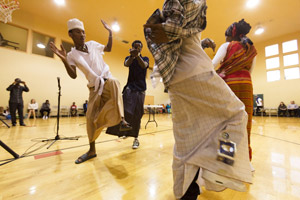
A still from the Somali Youth and Family Club, Northwest Folklife, and Jack Straw’s project “We’ll Meet Again.” Photo by Doug Plummer.
Programs for Composers
Jack Straw serves local and national composers at all levels of their career through artist residencies, events, workshops, and other special projects.
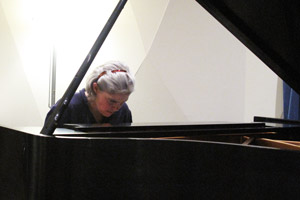
Jack Straw resident artist Rachel Matthews presents her original compositions at a Jack Straw event.
KRAB Radio
The Jack Straw Foundation originated in 1962 to establish KRAB-FM, one of the first non-commercial radio stations in the country. The station was founded by Lorenzo Milam, who ran it until 1968. KRAB was formed at a time of progressing technology, when relatively few FM receivers existed and community radio was unheard of. The first day KRAB was on the air, its transmitter blew up and was rebuilt. Broadcasting from locales ranging from an old donut shop to an abandoned firehouse, KRAB struggled and thrived for twenty-two years.
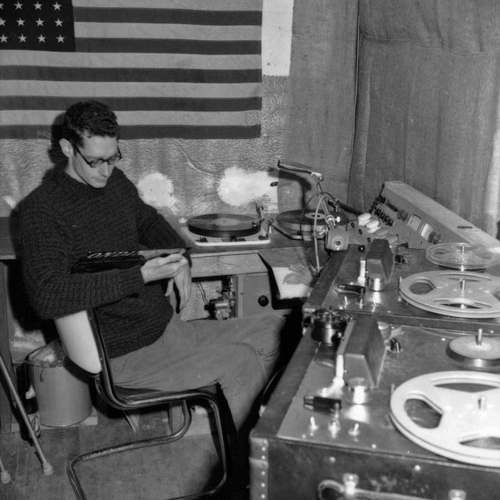
Lorenzo Milam in the KRAB control room, 1963



